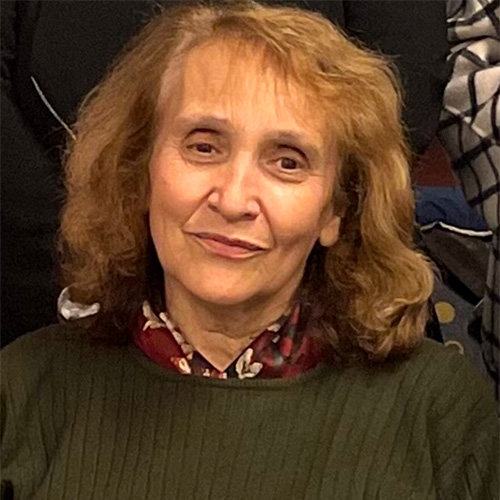Elena Glazov-CorriganProfessor, Russian Literature
Biography
To be an expatriate means that on more than one occasion ordinary experience can take very intense forms. Thus, education is never simply the classes you took or the degrees you acquired. For an immigrant, one's life story or process of education is also a tale of cultural adjustment, invariably punctuated by memorable cultural shocks. In my case, I no longer worry whether I am Russian, North American, Canadian, or even a Southern belle. I know I have come into close contact with several cultures, and I know that I am now very fortunate to be able to introduce Emory students to Russian literature, culture, civilization, and language. For me what I teach is an academic discipline, but it is also a personal story.
I was born in Moscow and left it at the same age as most American students enter their sophomore year. Just before Richard Nixon visited Moscow, every member of my family was stripped of Soviet citizenship, and we never expected to see our country again. Nixon's visit was significant: to avoid troubles with the United States, people, like my parents, were sent West, rather than to the Russian East or Northern Gulags. Thus, entering a North American lifestyle was a blessing, but also a necessity. There was no other homeland.
Yet history has chapters and new volumes, just like fiction. The 1990s saw formidable changes of Soviet policy (both internal and external), and for us it meant that we were allowed to visit Russia. That return affected what I teach and read and how I interpret the tradition I examine. That same return was also, in my case, accompanied by writing. Looking through the growing list of stories, I find that they go beyond a personal reflection. They are a diary of change, which has (the young T.S. Eliot would be pleased) an objective correlative, i.e., historical reality, and for this reason, among others, I offer them to Emory students.
